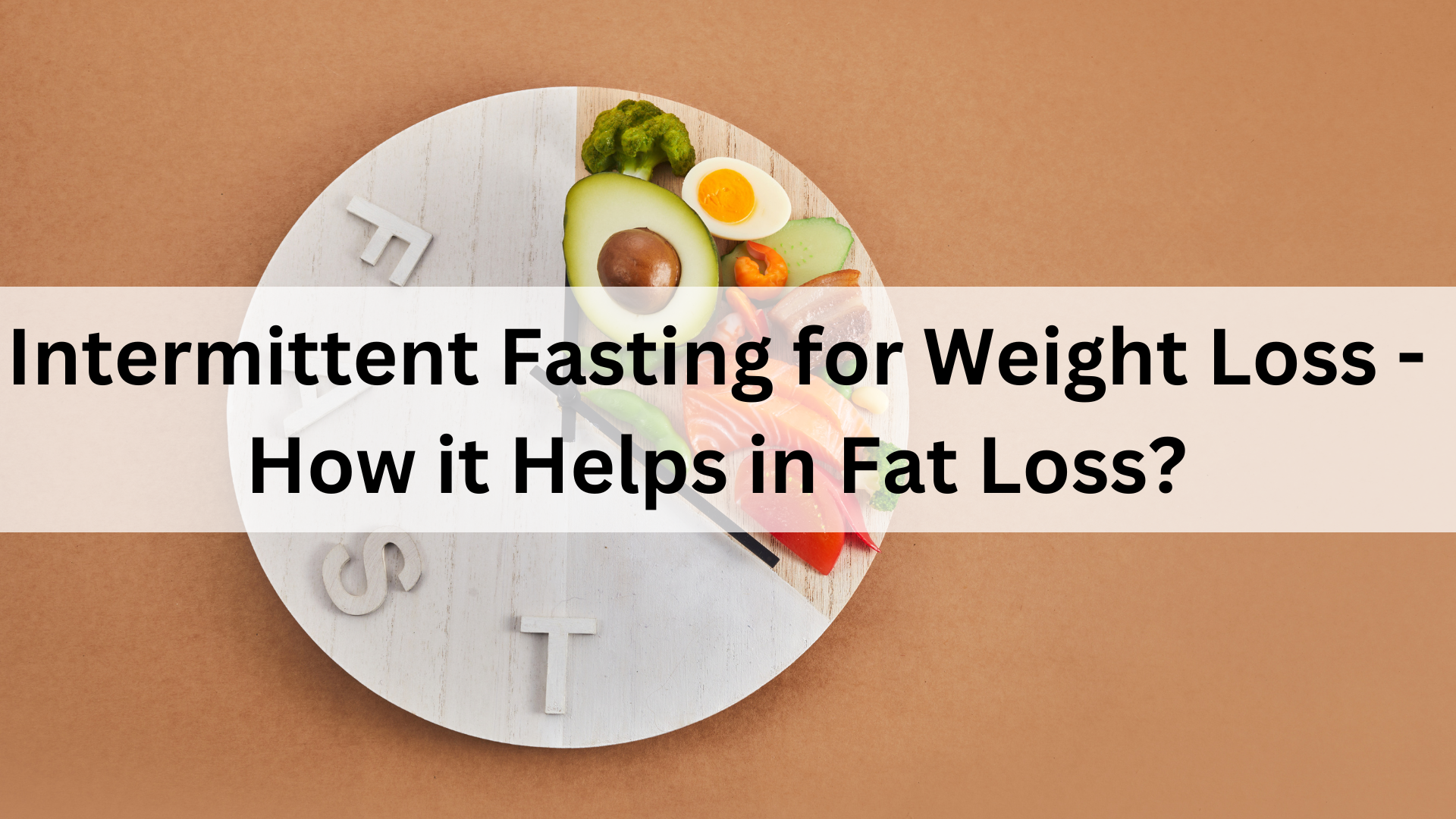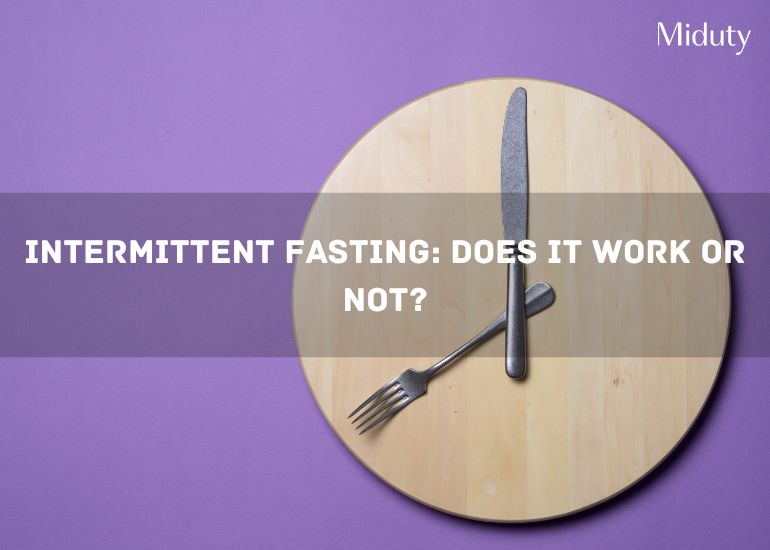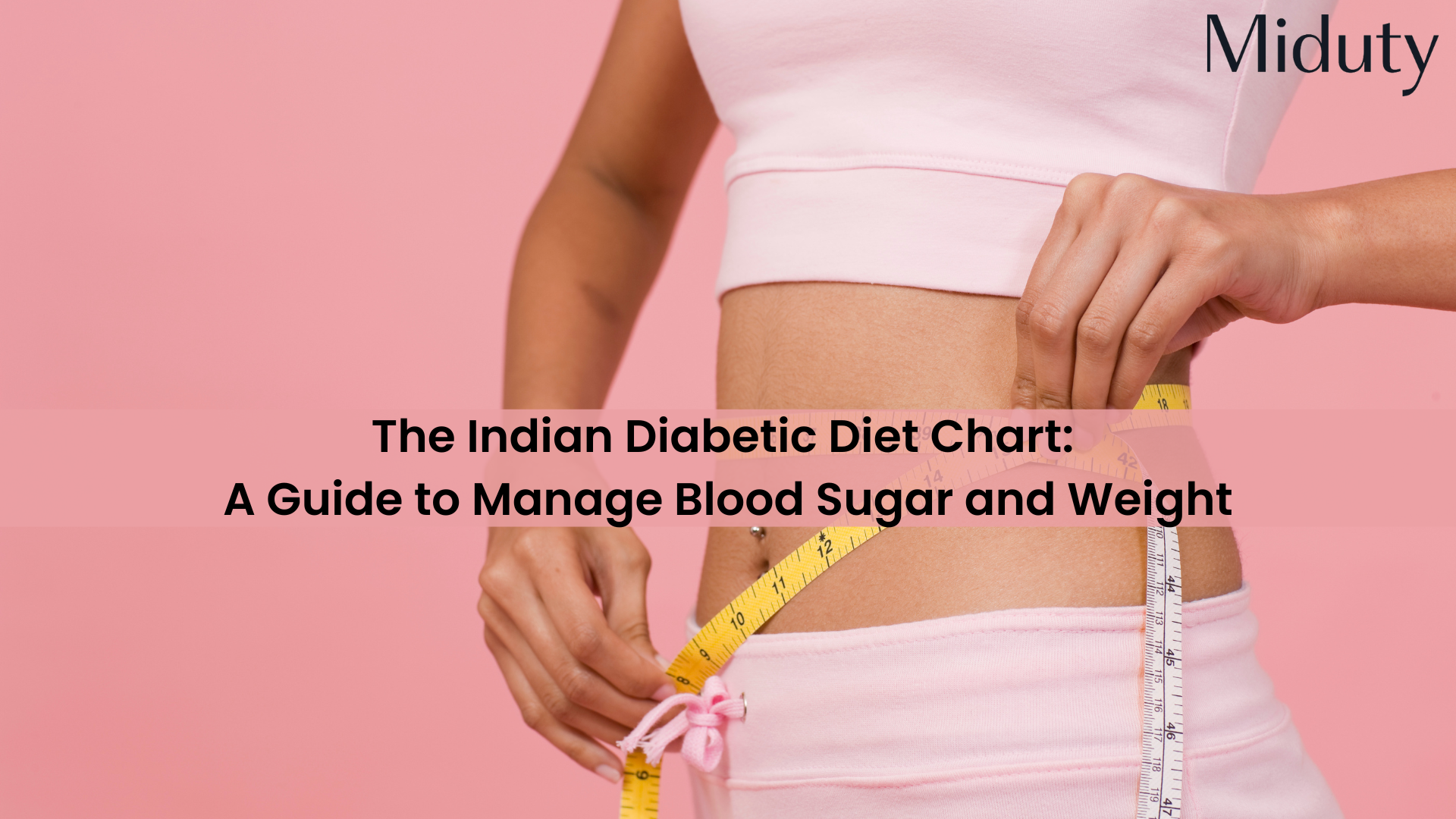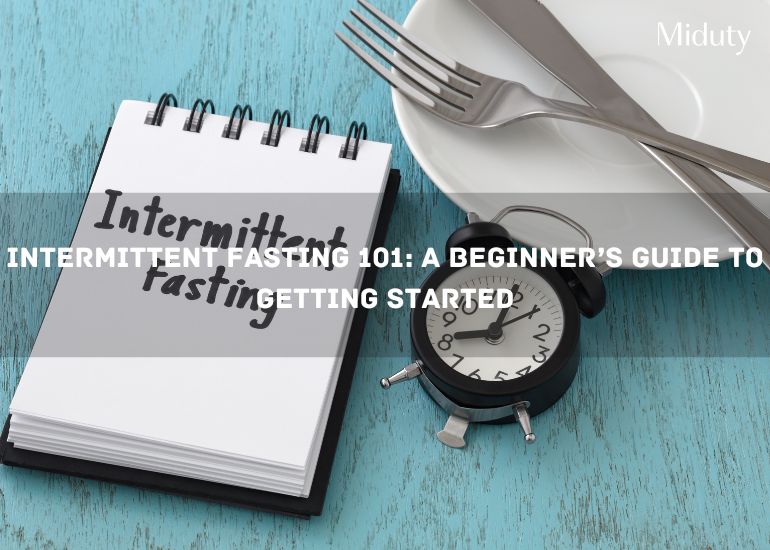
Intermittent Fasting for Weight Loss - How it Helps in Fat Loss?
Intermittent Fasting for Weight Loss - How it Helps in Fat Loss?
Introduction | What is Intermittent Fasting? | Intermittent Fasting for Weight Loss | Tips for Intermittent Fasting | Is Intermittent Fasting Right? | Supplements for Intermittent Fasting | Conclusion | FAQs | References
Key Takeaways
- Flexible Eating Patterns: Intermittent fasting (IF) focuses on when you eat rather than what you eat, offering a more flexible approach to meal timing that can simplify eating patterns and reduce the mental load associated with traditional dieting.
- Metabolic Boost: Intermittent Fasting (IF) can enhance metabolism by shifting the body from burning glucose to burning fat for energy during fasting periods, potentially increasing calorie expenditure and promoting fat loss.
- Insulin Regulation: By limiting eating times, intermittent fasting helps reduce insulin levels, making it easier for the body to access fat stores for energy and decreasing the risk of weight gain.
- Nutrient-Dense Choices: Although IF doesn't prescribe specific foods, it encourages healthier eating habits, leading many people to make more nutritious food choices during their eating windows, which can help with weight management.
- Protein's Importance: Incorporating a protein supplement can support muscle maintenance and promote fullness, which is especially beneficial during fasting periods to help curb cravings and prevent overeating.

Imagine this: You're trying to squeeze into your favorite jeans, but they just won't budge. You've tried every fad diet, and yet, the scale barely budges. You feel stuck in a never-ending cycle of calorie counting and food guilt. If this scenario sounds all too familiar, you're not alone.
That's where intermittent fasting comes to your rescue. Intermittent fasting—a buzzword that's taken the health and wellness world by storm. But can it be the game-changer you've been waiting for?
Let's unravel the mystery behind this trendy approach and discover how intermittent fasting could be the key to your weight loss success.
What is Intermittent Fasting?
At its core, intermittent fasting (IF) isn't about what you eat but when you eat. Instead of following restrictive diets that dictate what you can and cannot eat, IF focuses on the timing of your meals. It involves cycling between periods of eating and fasting, which might sound a bit daunting but is surprisingly simple. You must be wondering, how to do intermittent fasting for weight loss.
There are several popular methods of intermittent fasting, but the most common include:
- 16/8 Method: Fast for 16 hours and eat during an 8-hour window. For example, you might eat between noon and 8 p.m.
- 5:2 Diet: Eat normally for five days of the week and restrict calorie intake to around 500-600 on the other two days.
- Eat-Stop-Eat: Fast for 24 hours once or twice a week.
How Does Intermittent Fasting Help with Weight Loss?
So, why is intermittent fasting creating such a buzz? The science behind it offers some compelling reasons why this approach might be effective for weight loss.
1. Simplifies Eating Patterns
One of the biggest challenges with traditional dieting is the constant mental juggling of meal planning and calorie counting. Intermittent fasting simplifies this by reducing the number of meals you need to plan for, which can make sticking to a healthier eating pattern easier.
2. Boosts Metabolism
During fasting periods, your body switches from burning glucose to burning fat for energy, leading to a metabolic shift that can increase overall calorie expenditure. This process boosts levels of norepinephrine, a hormone that enhances fat burning. As a result, intermittent fasting not only promotes effective weight management but can also support permanent weight loss by creating a sustainable environment for your body to efficiently utilize stored fat for energy. [1]
3. Reduces Insulin Levels
High insulin levels can lead to weight gain because insulin promotes fat storage. By limiting the time you spend eating, intermittent fasting helps reduce insulin levels, making it easier for your body to tap into fat reserves for energy. [2] People with diabetes should approach intermittent fasting with caution due to the potential for significant fluctuations in blood sugar levels. Fasting in diabetes can lead to hypoglycemia, which is a condition characterized by dangerously low blood sugar levels that can cause symptoms like dizziness, confusion, and fainting, especially if insulin or diabetes medications are taken without adequate food intake.
4. Enhances Hormone Function
Fasting triggers the release of growth hormone, which plays a role in fat loss and muscle gain. Elevated growth hormone levels during fasting periods can help preserve muscle mass while promoting fat breakdown. [3]
5. Encourages Healthy Eating
Though intermittent fasting doesn't prescribe specific foods, many people find they make healthier food choices because they're more conscious of what they're eating during their eating windows. This can naturally lead to a decrease in calorie intake.
Also Read: Is Intermittent Fasting Good?: Benefits & Disadvantages Explained
6. Promotes Fat Loss While Preserving Muscle Mass
Intermittent fasting encourages fat loss while helping to maintain muscle mass. When you fast, your body becomes more efficient at using fat for energy instead of relying solely on carbohydrates. This process helps ensure that you lose fat instead of muscle, which is crucial because maintaining muscle helps keep your metabolism high. A higher metabolic rate means your body burns more calories even when you're not active. [4]
7. Improves Appetite Control
Fasting can help balance the hormones that control hunger. When you fast, the body reduces levels of ghrelin, the hormone that signals hunger, while improving sensitivity to leptin, which helps you feel full. As a result, you may find it easier to manage your appetite, reducing cravings and making it simpler to stick to healthier eating habits during your eating windows. [5]
8. Supports Cellular Repair
During fasting, your body initiates a process called autophagy, where it cleans out damaged cells and regenerates new ones. This process helps improve overall metabolic health, allowing your body to function better. By optimizing cellular function, fasting can support weight loss by enhancing your body's ability to process nutrients and burn fat efficiently. [6]
9. Enhances Mental Clarity
Intermittent fasting can enhance mental clarity by promoting the production of brain-derived neurotrophic factor (BDNF), a protein that supports brain health and cognitive function. During fasting, the body shifts to using fat for energy, which produces ketones—an efficient energy source for the brain. Many people report improved focus, sharper thinking, and increased alertness during fasting periods, likely due to stable blood sugar levels and reduced inflammation. When you're more focused, you might be less likely to indulge in unhealthy snacks and more likely to stick to your weight loss plan. [7]
10. Facilitates a Natural Caloric Deficit
Intermittent fasting naturally limits the time available for eating, which can help you consume fewer calories without feeling like you're on a restrictive diet. This makes it easier to achieve a caloric deficit, which is essential for weight loss. By concentrating your meals into a shorter time frame, you might find yourself eating less overall, leading to weight loss over time.
Tips for Getting Started with Intermittent Fasting

If you're considering giving intermittent fasting a try for fat loss, here are a few tips to help you get started:
1. Start Slowly: Begin with shorter fasting periods and gradually increase as your body adjusts.
2. Stay Hydrated: Drink plenty of water during fasting periods to stay hydrated and curb hunger. Drink plenty of water during fasting periods to stay hydrated and curb hunger. You can also enjoy herbal teas or black coffee to add variety while keeping your fluid intake up.
3. Listen to Your Body: Pay attention to how your body responds and adjust your fasting schedule as needed. If you find yourself feeling excessively fatigued, irritable, or experiencing persistent hunger, it may be beneficial to shorten your fasting window or modify your eating plan to ensure it aligns better with your energy levels and lifestyle.
4. Choose Nutrient-Dense Foods: Focus on whole, nutrient-rich foods like lean proteins, and healthy fats like soaked nuts and seeds during eating periods to ensure you're getting the vitamins and minerals your body needs.
5. Increase Your Protein Intake: Protein-rich foods are essential during intermittent fasting to support muscle maintenance and keep you feeling full. Options like chickpeas (chana), lentils (dal), paneer, Greek yogurt, black beans, and eggs are excellent choices. Additionally, Incorporating a protein supplement during your eating window can help ensure you meet your daily protein needs, supporting muscle maintenance and overall recovery.
6. Bulletproof Coffee: Bulletproof coffee, a blend of coffee, grass-fed butter, and MCT oil, can be a valuable addition to intermittent fasting. It provides a rich source of healthy fats, which can help maintain energy levels and promote satiety without breaking the fast. The combination of caffeine and fats may enhance focus and mental clarity, making it easier to stay productive during fasting periods. Additionally, bulletproof coffee can help curb cravings, allowing you to stick to your fasting schedule while enjoying a delicious, creamy beverage.
Make sure to break your fast by consuming protein-rich foods as they help in muscle mass and also promote the feeling of fullness.
Also Read: 7 Tips on What should be your Intermittent Fasting Diet?
Is Intermittent Fasting Right for You?
While intermittent fasting can be a powerful tool for weight and fat loss, it's not a one-size-fits-all solution. It's essential to consider your lifestyle, health conditions, and personal preferences.
You can watch my detailed video on intermittent fasting for a deeper understanding of its benefits and how to implement it effectively. Watch here!
Consulting with a healthcare provider before starting any new dietary regimen is always a good idea, especially if you have underlying health issues.
Get your FREE intermittent fasting diet plan today! Start your journey to better health with easy guidelines and tips. Download now!
Also Read: How to Pick the Right Intermittent Fasting Plan and Perfect Your Timing?
Why Protein is the Best Supplement for Intermittent Fasting for Weight Loss?
Protein stands out as the best supplement for intermittent fasting and weight loss due to its ability to preserve muscle mass while promoting a feeling of fullness. This is crucial during fasting periods, as it helps curb cravings and reduces the likelihood of overeating.
Miduty Fit N Lean Protein Shake is an excellent choice for those on this journey, as it contains 1 billion probiotics, which help alleviate bloating—a common concern for many protein consumers.
Additionally, the inclusion of MCT fats not only aids in satiety but also helps keep cravings at bay, making it easier to stick to your fasting schedule while supporting your weight loss goals.
Also Read: Intermittent Fasting: Does It Work or Not?
Conclusion
In conclusion, intermittent fasting isn't a magic bullet, but it offers a flexible and scientifically backed approach to weight loss that could be just what you need to break free from the cycle of dieting frustration.
By focusing on when you eat rather than what you eat, you might find that achieving your weight loss goals becomes a little bit easier—and a lot more manageable. So why not give it a shot? Your future self might thank you for it!

Frequently Asked Questions (FAQs) on Intermittent Fasting for Weight Loss
Q1 - How much weight can you lose in a month with intermittent fasting?
With intermittent fasting, weight loss varies by individual, but many people lose 1-4 pounds per week, equating to 4-16 pounds in a month. Results depend on factors like diet, exercise, and adherence to the fasting schedule.
Q2 - Can we drink water during intermittent fasting?
Yes, you can drink water during intermittent fasting. Staying hydrated is important and water has no calories, so it won't break your fast.
Q3 - What is the best time for intermittent fasting?
The best time for intermittent fasting depends on your schedule and lifestyle; popular options include the 16/8 method (fasting for 16 hours and eating within an 8-hour window) or the 5:2 method (eating normally for 5 days and reducing calories for 2 days).

References







